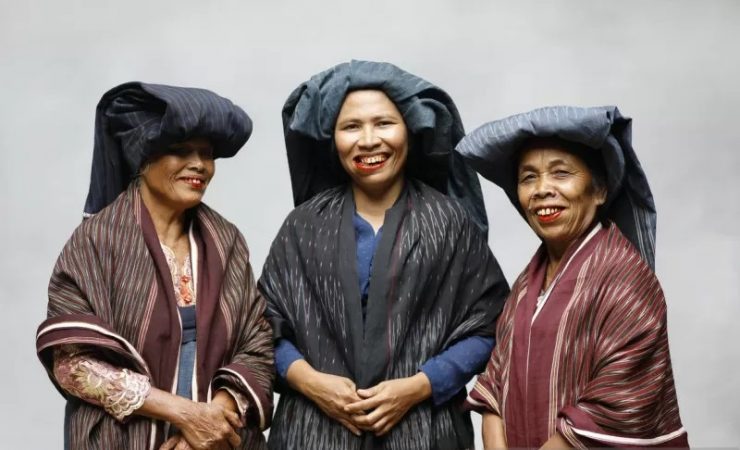THE ARCHIPELAGO’S wastra (cloth), including Ulos, which is a typical fabric of the Batak community, continues to be preserved, including making it part of a colorful fashion product.
This is inseparable from efforts to improve the ability of weavers, including in designing fabrics to become fashion products, according to the Special Staff of the Ministry of Manpower, Dita Indah Sari.
“In addition to improving their weaving skills, their ability to design woven fabrics into fashion items or fashion items that are combined so that they are colorful,” she said at an online press conference commemorating the 2021 National Ulos Day entitled Bangga Bertenun Bangga Berbudaya (Proud of Weaving, Proud of Culture), quoted Saturday (10/16).
According to Dita, weavers who have been struggling in their profession for a long time also need to get recognition, one of which is through the provision of certification.
Indonesia currently has a national work competency standard specifically in the field of traditional weaving. With this standard, there is provision in the manufacture of training programs to the development of training instructors.
Later, those who have received certification as instructors can conduct training anywhere. On the other hand, the opportunity to train prospective weavers as well as to improve the skills of existing weavers is also wide open.
Not only about the ability to weave, Dita also assesses the importance of assistance in terms of financing and assistance so that weavers can be more independent and have bargaining power against middlemen or often called tauke. She realized that the weavers often choked on very high flowers.
The challenges faced by weavers are also recognized by local governments, one of which is the Dairi Regency Government, North Sumatra. The Regent of Dairi Regency, North Sumatra, Eddy Keleng Ate Berutu said that the dependence of the weavers on suppliers of funds with very high interest offers caused their economy to be unable to grow. From a marketing perspective, dependence on tauke makes weavers unable to show their bargaining power.
According to Eddy, the local government is actually trying to encourage and improve the sustainability of the craft and creative industries, including the preservation and development of Ulos through various strategies, including providing stimulus to Micro Small and Medium Enterprises (MSMEs) and cooperatives, training and mentoring for MSMEs to improve the quality of production and marketing.
Community based preservation
In line with efforts to preserve Ulos, the Ministry of Manpower cooperates with Tobatenun as a strategic partner to empower Ulos weavers, one of which is Toba.
“This collaboration between the Ministry of Manpower and Tobatenun is a manifestation of the employment opportunity expansion program owned by the Ministry of Manpower to train, develop and manage the marketing of ulos craftsmen around Lake Toba,” said Dita.
She said, the Ministry of Manpower and Tobatenun designed a business roadmap that could be profitable and have a welfare impact on Ulos small, medium enterprises (SMEs).
Meanwhile Founder & CEO of Tobatenun, Kerri Na Basaria said, players and craftsmen are often forgotten in cultural preservation. In fact, according to him, efforts to preserve culture must go hand in hand with efforts for social change and understanding the balance between modernization and culture is needed for the good in the future.
However, he realized, there are still challenges faced by these players and weavers, ranging from poverty, exploitation by collectors, not receiving a living wage and many complex social issues that come from poverty.
He then together with his partners tried to open up opportunities through a training platform that is also a means of learning and education for weavers who have less opportunity, as well as assisting them so that it is hoped that it will lead to a healthy community development or not exploitative.
From the production side of Ulos, Kerri focuses on revitalizing wastra culture to its roots, using natural materials, fibers, coloring and techniques that, according to him, are now lost and almost extinct.
“We encourage the use of environmentally responsible weaving and environmentally friendly manufacture that prioritizes sustainable principles,” he said.
Furthermore, realizing the potential of Ulos to be able to compete in national and foreign markets, Kerri and Tobatenun introduced Ulos to the international market through their participation in TENUN Fashion Week which will be held virtually on 15-17 October 2021. This performance is scheduled to feature 45 participating weaving communities from Cambodia, Indonesia, Laos, Malaysia, Philippines, Thailand and Vietnam.
In TENUN Fashion Week, Tobatenun presents two product lines, namely Tobatenun and BORU. They display a revitalizing collection of old ulos which is also the first collection for distribution on the platform that comes in Ragi Hotang, Ragi Idup, and Tumtuman motifs.
As for Boru products, Tobatenun displays the ready to wear collection Sindar which is the result of the collaboration of young designers and various SMEs and craftsmen from Siantar, Yogyakarta, and Jepara.
Kerri said he was optimistic that the archipelago, including Ulos, could host it in its own country and could be enjoyed by a wider market as more and more parties were involved in preserving and developing its ecosystem.
“We also hope that our efforts in empowering artisans and various other social activities can have a broad impact on the weavers to give them hope for a better future,” he concluded. [antaranews]
















